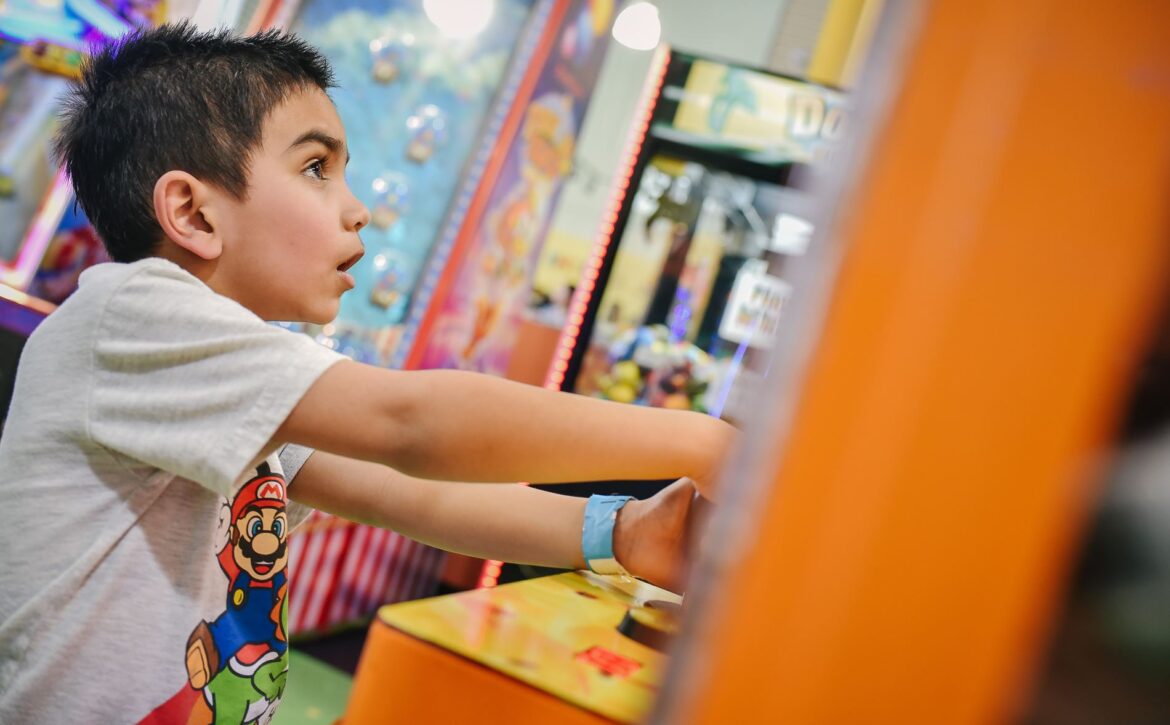What Experts Have to Say About Playtime
Experts agree that playtime is an essential cornerstone for proper childhood development. However, in today’s tech-saturated world, many experts fear that children aren’t getting enough free playtime.
Couple this with a global pandemic that has encouraged further social isolation and we have an unfortunate decline in kids having proper opportunities to play, grow, and learn.
Read on as we explain exactly what playtime is and summarize fun activities for kids of different ages as well as their benefits.
Happy reading!
What is Playtime?
Playtime is one of the most vital ways for children to learn about the world around them. It is also the best way to encourage physical exercise, creative thinking, and proper psychological development in children. An unregulated, unstructured opportunity to play allows children to nurture their relationships with both others and themselves.
In order for children to develop the right skill sets to optimize their development, playtime is essential. According to the American Journal of Pediatrics, playtime “is a singular opportunity to promote the social-emotional, cognitive, language and self-regulation skills that build executive function and a prosocial brain.”
The Best Activities for Different Ages
Successful learning is best fostered by catering to a child’s inclination to play. As children engage with others and learn more about the world around them, different play activities can help them gain vital skills as they reach each developmental milestone.
Some examples of activities to try with children at different ages include:
Infants
From birth to six months old, babies are learning about the world around them by taking in all of their sights, sounds, textures, colours, and angles. They’re using their bodies to explore, learning to participate in social interactions and how to elicit responses from both people and objects.
Some ways to encourage playful learning in small infants includes imitating your baby’s coos and babbles, showing them interesting objects to spark their attention (such as colourful toys, rattles, stuffed animals, and dolls or stacking toys), or placing them in different positions so that they can view things from different angles.
From the age of 7 to 12 months, after making sure your baby has a safe environment to explore, you can teach them that actions have effects (for example, by allowing them to play with and pick up toys when they fall). You can play peek-a-boo with them as well.
1–3 Years Old
As toddlers start to develop more advanced participation and language skills, they’ll benefit tremendously from playful learning. In fact, it is so important that experts recommend that unstructured playtime is a focal point of early childhood education.
Fun kids activities during early childhood can include parent-supervised playdates with other children of a similar age, make-believe or pretend play, sing-along songs and different movements to help them explore the body (such as jumping, standing on one leg, and games like Simon Says).
Playing with simpler toys at this age is also a great way to encourage a child’s creative thinking skills such as through blocks, empty containers, and puzzles—not smartphones or complicated gadgets!
4–6 Years Old
School-aged children learn how to develop friendships, plan, attach language to ideas and concepts, and create desired effects with objects and people. It’s also at this age that children begin to develop critical motor skills and proper hand-eye coordination, making any hands-on activities a must.
Some ideas for kids activities at this age can include reading and telling stories, allowing them the space to act out pretend scenes and roles, providing them with time to socialize and interact with friends, providing opportunities to sing and dance, and encouraging a variety of safe movements (such as skipping, hopping, swinging, and climbing).
Toys that will help foster their development may include puzzles, construction toys with interlocking pieces (such as Lego), props for pretend games, art supplies, or simple musical instruments.
The Benefits of Playtime
Playtime is one of the most critical vehicles for childhood growth. Some of the ways children can develop through playtime include:
Increased motor skills and concentration
Physical activity during playtime is crucial to the development of children’s fine motor skills and ability to concentrate. Through play, children can learn to wield better control of objects as well as practice better coordination of their body movements and smaller movements between the hands and fingers.
To support gross motor development—this includes control of the arms, legs, hands, and trunk—children can develop their skills through physical activities such as running, jumping, throwing, skipping, tossing balls, and much more.
To support fine motor skill development—this includes control of the hands, feet, fingers, and toes—hands-on activities such as cut-and-paste projects, play dough, blocks, puzzles, and colouring are all ideal.
Social skills development
Through playtime, children develop skills that will have an enormous effect on their overall social development. Playtime teaches children the right skills needed to establish and maintain positive interactions with other people, which will be critical for making and sustaining friendships and relationships as they get older.
Interactions made during playtime also help children to develop empathy as different situations can help them respond to others’ emotions and learn to put themselves in others’ shoes to recognize their feelings.
Teamwork Skills
Unstructured playtime allows children to interact with their peers, making it vital for teaching them how to make friendships, resolve conflicts, and work in teams. For example, playground games teach children how to sort themselves into teams, take turns, set out rules, and then experience the benefits of following them.
Learning proper teamwork skills is essential when it comes to early childhood development. Children learn a lot of virtues in these environments such as patience, tolerance, respect for others, and the ability to compromise.
Jumbaloo Awaits Your Next Playdate!
We hope you’ve enjoyed this article on all of the various activities for kids at home.
If at, anytime, you want to drive your kids to an indoor playground area or are looking to book a party room for your little one’s upcoming event, contact our team at Jumbaloo. We are adhering to strict Covid-19 rules and regulations for your safety and that of our team.
Call us today at 905-785-3990 or visit our online contact page.
From all of us at Jumbaloo: Stay safe and we look forward to seeing you soon!


